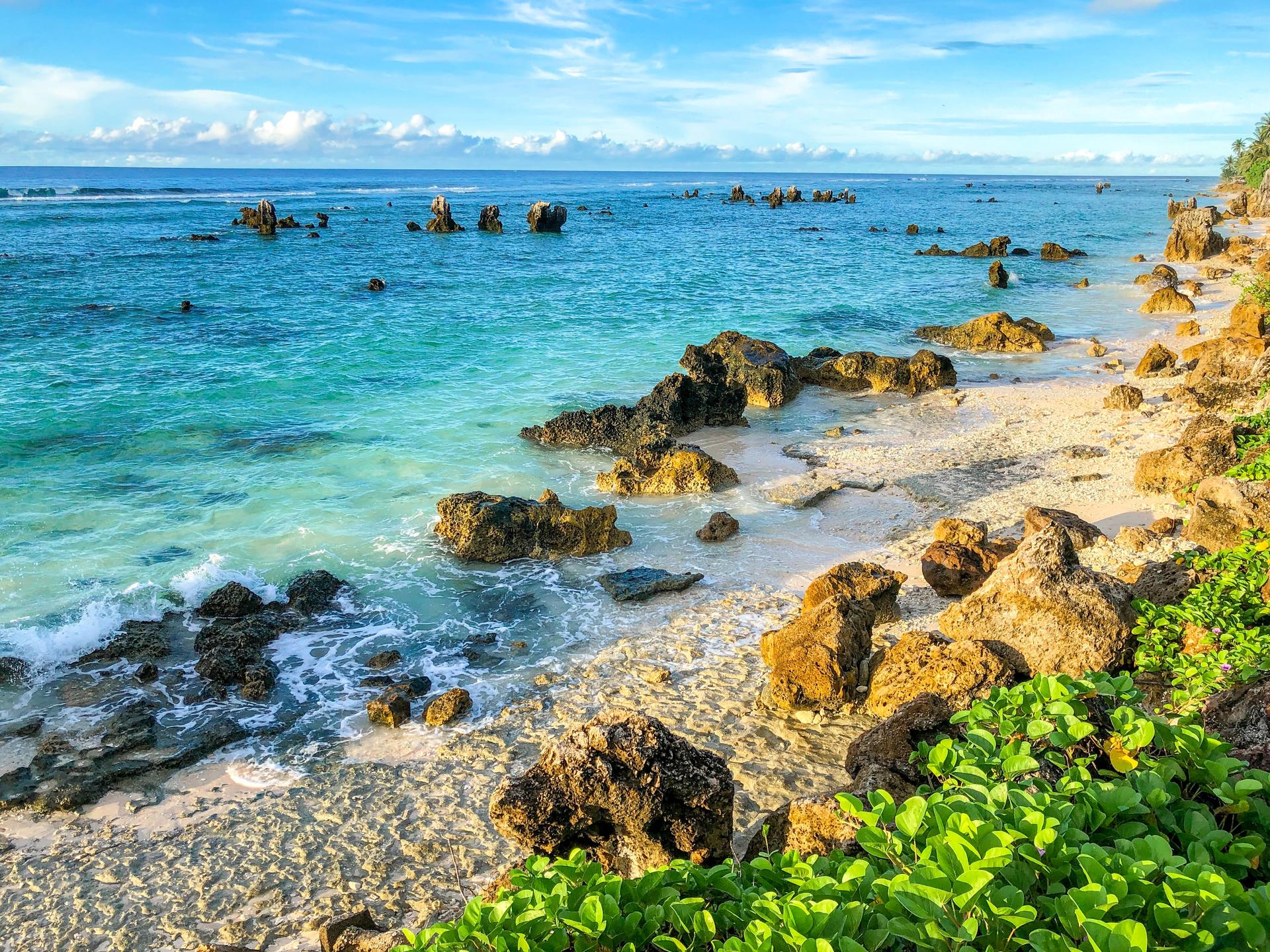Nauru🇳🇷

Nauru is a tiny island country located in Micronesia in the Central Pacific. It doesn't share land borders with any other country due to its remote location in the Pacific Ocean. Evolving from Polynesian and Micronesian cultures, Nauru is known for its unique traditions like the 'Nauru Bwiema' dance. With phosphate mining once booming, now Nauru is heavily dependent on financial aid. The strata of the coral reefs and marine life are natural attractions for scuba diving enthusiasts. The Anibare Bay, Yaren District and The Parliament House are well-known landmarks. Tourists can enjoy the tranquility and interaction with the local people, offering an introspective look at the simplicity of island life.
⚠️Things you should avoid⚠️
- Avoid drinking tap water. Stick to sealed bottled water.
- Avoid open displays of affection if you're part of a same-sex couple.
- Avoid disregarding local customs and traditions. It’s important to respect local culture.
- Avoid swimming alone in the ocean due to potentially strong currents.
- Avoid helplessness in any medical emergencies, health insurance with evacuation facility is recommended.
- Avoid traveling alone at night, and always secure your personal belongings.
- Avoid controversial political topics in conversation.
- Avoid unprotected sun exposure. Always use sunscreen when outdoors due to the island's proximity to the equator.
- Avoid careless disposal of trash. Respect the island's fragile ecosystem.
- Avoid exploring the phosphate mines without a guide due to safety concerns.
Overall
7
Crime 🔫
9
Nauru is known for its low crime rate due to its close-knit community and the small size of the island. Violent crimes are unlikely. As it's small, there's no specific unsafe city. However, visitors should always take care with personal belongings and documents.
Terrorism 💣
10
Nauru has never seen any prominent terrorist activities. Its isolated geographic location and lack of political turmoil make it unlikely to be targeted by international terrorist groups. Nauruan security forces maintain a tight control over the island's security.
War ⚔️
10
Nauru has enjoyed decades of peace and has not been involved in any wars or major military conflicts since World War II, when it was occupied by Japan. It has no active disputes with neighboring countries.
Natural Disasters 🌊
7
Being an island nation, Nauru is vulnerable to ocean-related natural disasters such as cyclones and sea level rise due to climate change. No severe natural disasters have been reported in recent years though.
Medical Care 🏥
6
Nauru has a basic level of healthcare. The Republic of Nauru Hospital is the sole hospital on the island providing medical services. For serious medical conditions, evacuation to a country with better medical facilities might be necessary.
Tap Water Quality 💧
5
Drinking tap water is not recommended in Nauru. Bottled water and other sealed beverages are generally safe to drink.
Disease Burden 🤒
7
Nauru has a relatively low disease burden. However, non-communicable diseases such as diabetes and obesity are common due to lifestyle and dietary habits of the local population.
Corruption 💸
6
Corruption has been a problem in the past, particularly linked to phosphate mining. However, the government has made efforts to increase transparency and combat corruption. Public officials are held accountable for their actions to a certain degree, but there's room for improvement.
Safety for Women ♀️
9
Nauru is generally safe for women travelers, with little harassment reported. However, it's recommended to maintain usual precautions, such as avoiding travel alone at night.
Safety for Queer People 👬
6
While homosexuality is legal in Nauru, societal acceptance isn't as progressed. Open displays of affection between same-sex couples may attract unwanted attention.
Censorship 📺
7
While freedom of speech and press is officially recognized in Nauru, there have been incidents blocking certain websites including Facebook in the past, mainly to control what the administration considered 'abusive comments'. Presently, internet service is unrestricted.
Public Transportation 🚌
6
Public transportation in Nauru is limited; there's a community bus and most locals use private vehicles. There are no records of major public transportation accidents. The island can be circled by car in less than an hour.
Other useful information
🔒 How safe is it?
Nauru is relatively safe, owing to its low crime and terrorism rates. Nevertheless, travelers should exercise usual precautions, respect local customs and behaviors, and ensure they're insured especially for any major medical need.
🏰 Embassies in this Country
There are no foreign embassies in Nauru. The nearest embassies for many countries are located in Australia or other Pacific island nations.
💉 Recommended Vaccinations
Routine vaccines, Hepatitis A and B, Typhoid, and influenza are recommended before traveling to Nauru.
🐍 Dangerous Animals
There are no dangerous animals on land in Nauru. However, marine life such as species of jellyfish in the ocean may pose hazards to swimmers and divers.
🛂 Visa Requirements
Most travelers to Nauru need to apply for a visa before arrival. Some nationalities can apply for a visa on arrival, but it’s recommended to check with a Nauru consulate to confirm.
💲 Currency
The official currency is the Australian dollar. Money can be exchanged at the airport, hotel, or banks.
💳 Credit Card Acceptance
Credit card acceptance is very limited. It's recommended to carry enough cash for the duration of the visit.
🧑🏭 Is it possible to work and travel in this country?
Opportunities for work and travel are limited in Nauru, due to the small size and economy of the country.
💵 Cost of Travel and Living
The cost of travel and living in Nauru is moderate. Though there aren't many lodgings available, meals and local transportation are affordable.